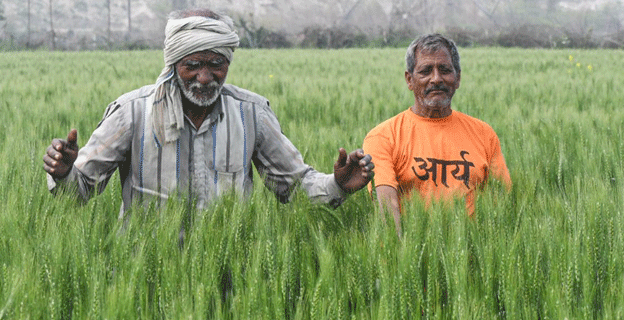India’s wheat production is under severe threat as the nation grapples with record-breaking temperatures. February 2025 has been the warmest since records began 124 years ago, and the India Meteorological Department (IMD) warns that March will continue this trend with above-normal temperatures and an increased number of heatwave days.
Wheat, predominantly cultivated in the northwestern Indo-Gangetic plains—encompassing Uttar Pradesh, Punjab, Haryana, and Madhya Pradesh—thrives in cooler climates. Typically sown between October and December and harvested from February to April, wheat requires moderate temperatures during its growth phases. However, the current climatic anomalies are disrupting this cycle.
Elevated temperatures can induce early flowering and hasten the ripening process, adversely affecting both the quality and quantity of wheat yields. Experts note that such heat stress, especially during the grain-filling stage, can lead to reduced photosynthesis, impaired grain development, and increased pollen sterility. Even minor temperature elevations during critical growth periods can result in substantial yield losses.
The IMD’s forecast indicates that maximum temperatures could exceed 40 degrees Celsius in many states by the end of March. This projection is particularly concerning for wheat farmers, as such extreme heat during the maturation phase can cause grains to shrivel, leading to reduced yields. Consequently, India, the world’s second-largest wheat producer, may face its fourth consecutive year of declining wheat stocks. This scenario could compel the government to reduce or eliminate the current 40% wheat import tax to mitigate anticipated shortages.
Beyond wheat, other winter crops like chickpeas and rapeseed are also at risk. The cumulative effect of these climatic challenges threatens to exacerbate food inflation and strain the agricultural sector.
The escalating temperatures present a formidable challenge to India’s wheat production and overall food security. Farmers, agronomists, and policymakers must collaborate to implement adaptive strategies, such as developing heat-resistant crop varieties, optimizing irrigation practices, and adjusting sowing dates. Proactive measures are essential to safeguard the livelihoods of millions and ensure the nation’s food supply remains stable in the face of climate change.
Error




